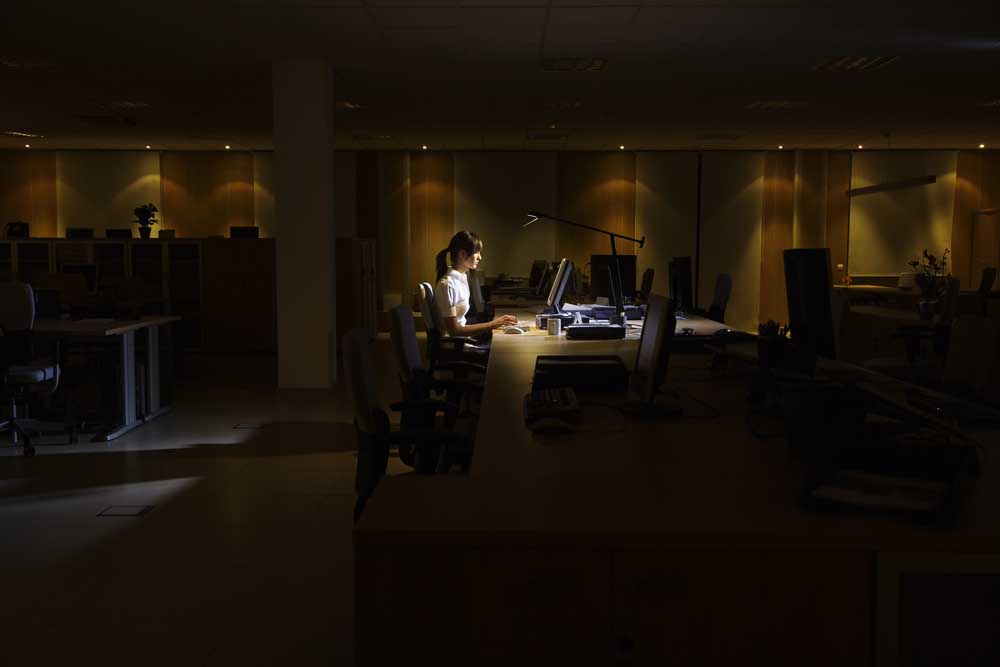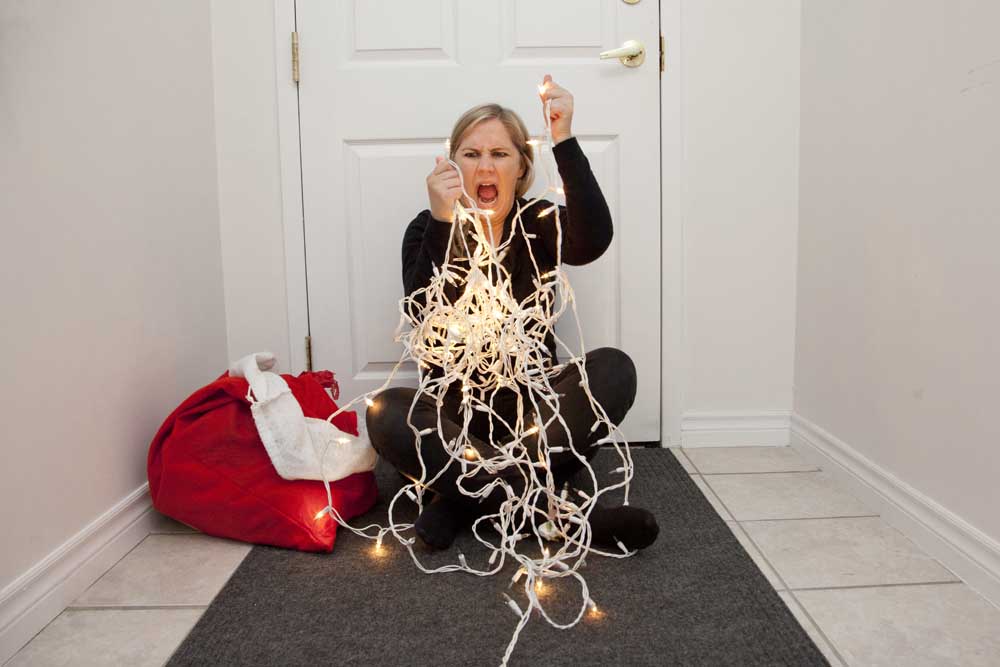Chances are, you’ve either said or heard each of these phrases. While not typically used with ill-intent, imagine for a moment being someone who experiences the mental health challenges described, and how you might interpret these statements. Small, intentional changes to the words we use can have a huge impact on others, so let’s go through some common phrases, why they might be harmful or contribute to stigma, and an easy alternative for each.
- I’m so OCD about _____.
We all have things we like a particular way, or feel some level of discomfort with if they are not done “properly”. However, OCD is a debilitating disorder that goes way beyond preferences or a bit of discomfort. While some people with OCD have obsessions and compulsions related to cleanliness and organization, there are many different themes, and reducing OCD to fixations on cleanliness dismisses these.
Instead try: It’s really important to me that the kitchen be clean, I feel uncomfortable when it’s messy!
- Everyone is a little ADD/ADHD.
Everyone is forgetful sometimes, struggles to focus on tasks sometimes, and struggles to find motivation sometimes. However, people with ADHD experience symptoms like these (along with many others) every single day, to a level that interferes with their functioning. Again, saying that “we all” have some level of this downplays the challenges people with ADHD face.
Instead try: Wow, I am so forgetful today!
- They’re so crazy/psycho!
People often use these terms to refer to someone displaying erratic or concerning behavior, whether or not it is related to a mental health diagnosis. It’s even used to refer to behavior we just don’t like, or to discredit someone. It is rarely, if ever, used with compassion, and if we are referring to people who are experiencing psychosis, delusions, mania, etc. it’s dismissive of the very real and terrifying experiences these people are going through.
Instead try: They seem to be struggling to stay connected to reality, I wonder if we can connect them to support?
- I also experienced ______ and I’m fine!
Trauma affects everyone differently, and we do not get to decide what is traumatic to someone. Research has shown that two people experiencing the same event (car crash, natural disaster, etc.) can have wildly different responses. Your brain’s response does not negate another brain’s different response.
Instead try: That sounds like it was terrifying for you, how can I support you?
- It’s been _____ months/years, you’re not over that yet?
Trauma also has no timeline, and isn’t something we “get over”. With help from tools like therapy, medication, and peer support many people can make incredible strides in healing from what happened to them, but trauma has lasting effects on the brain and nervous system.
This also applies to knowing someone has been managing a mental health diagnosis (OCD, Depression, Anxiety, etc.) long-term. Many people do experience significant improvements to a level where they no longer meet diagnostic criteria or identify previous challenges as a concern, but many people experience chronic mental health challenges that require lifelong management.
Instead try: I know this has been hard, let’s talk about how we continue supporting you.
- That person/the weather here is so bipolar!
While there are scientific uses for the term bipolar, most people more commonly use this term to casually refer to something/someone that changes rapidly and without warning. Again, speaking this way is dismissive of the intense and terrifying experience of shifting between manic and depressive episodes.
Instead try: The weather changes so quickly here!
- Kill me/I wanted to die!
For people who have experienced suicidal ideation or attempts, hearing other people casually or jokingly say things like this can contribute to the stigma that often stops people from seeking help. If you are experiencing suicidal thoughts (even passive ones!) it’s important to mention them so you can find help, but if you’re trying to find an impactful way to describe frustration, embarrassment, or shame, there are better options. Suicidal thoughts are more prevalent than you might think, and shouldn’t be the punchline in a joke.
Instead try: That was so embarrassing I wanted to run out of the room!
Now that you’re aware of the potentially harmful effects of these phrases, you might be surprised to notice how often you hear them used. To be a better mental health ally, first start but just noticing when you use them or when they come up for you, then try to consciously replace or correct yourself with something like the alternatives listed. Small changes make a big impact!

5 Benefits of Mindfulness
There are a lot of terms floating around the online world out there and it can be difficult to determine which ones to trust as the real deal and which ones are simply trigger words or click bait. One of the up-and-coming ones is mindfulness. As more and more...

Workaholism: The Hidden Epidemic
— WORKAHOLICS ANONYMOUS MEMBER Workaholism is described by some as the “respectable addiction,” though its affects can be destructive and even deadly to those who are compulsively addicted to work. How can you tell if you are a workaholic? How do we distinguish...

How to Ruminate Purposefully
Do your thoughts ever end up stuck in the past, replaying a conversation or event in your head? Susan Nolen-Hoeksema from Yale University describes ruminating as “a mode of responding to distress that involves repetitively and passively focusing on symptoms of...

How to Gear Up for an Awkward Conversation
Years ago, I was the guitarist in a rock band. Well, okay, the term “rock band” might be a bit of an exaggeration. It was really a group of fresh-faced college students playing children’s music at local parks. The trouble was, our drummer had just learned some fancy...

10 Places to Relax around Vancouver, WA
Are you exhausted by the burden of responsibilities you’ve been shouldering? Do you need a break or a breather, even if it’s just for a few moments? Self-care is an essential component of survival in this busy world! All of us need moments when we can slow down and...

15 Ways to Get MORE Socially Anxious
Have you ever wondered how social anxiety grows? Follow just one of the steps below and you’ll for sure notice it inching upward over time. Follow several of the steps and you’ll notice it grow by leaps and bounds. PLAY IT SAFE and only talk to people you know....

5 Tricks for Falling Asleep
Are you one of the 30% of Americans that have had bouts with insomnia? Do you get less than the recommended 7-9 hours of sleep each night (or 8-10 hours for teens)? Sleep loss can have profound impacts on a body’s physical and emotional health. Bad sleep can...

How to Cope with Stress & Loss around the Holidays
For some, the “most wonderful season of the year” is anything but wonderful. Any number of things can make this season challenging: Feelings of loneliness Worry about how family members will get along Missing a loved one that is no longer with you Guilt about...

5 Steps to Coping with Panic Attacks
Unless you are face-to-face with a bear or another physical danger, nothing feels more terrifying than a panic attack. Many have gone to the Emergency Room fearing heart attacks, strokes, and death. With symptoms including chest tightening, throat constricting, and...

Active vs. Passive Anxiety
Have you ever felt like someone is playing tug-of-war with you, except you are the rope? Being pulled in too many directions can be exhausting, and if it happens over an extended length of time, it can lead to extreme anxiety or burnout. If...

